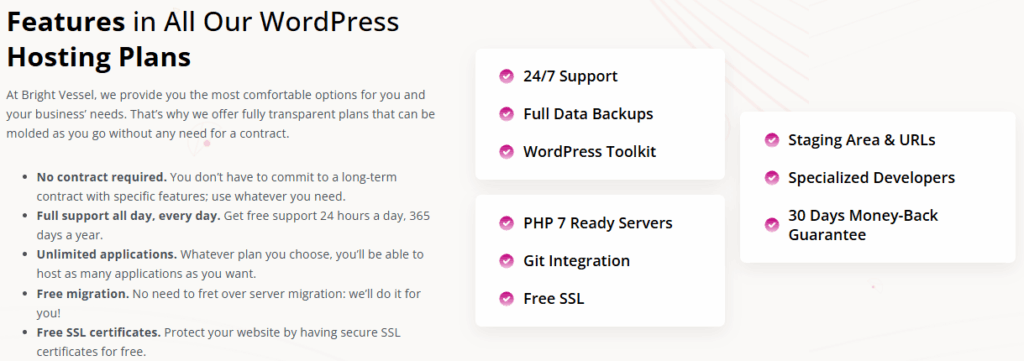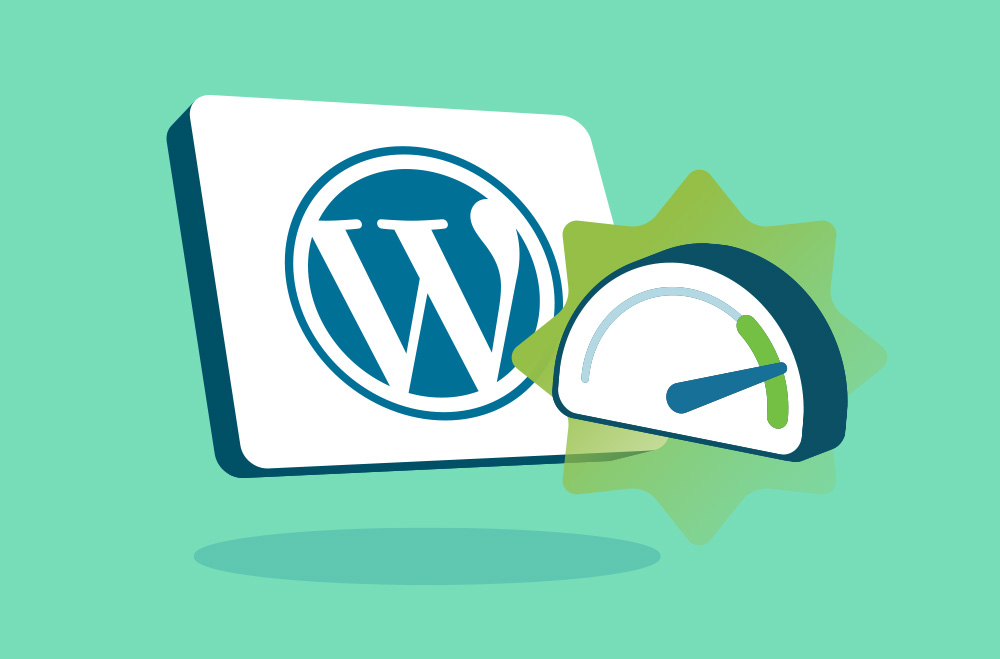
Sélection d’un Plan d’hébergement WordPress peut influencer les performances, la sécurité et l’expérience utilisateur de votre site Web. Votre choix d’hébergement affecte la vitesse du site, la disponibilité, la fiabilité et la protection contre les menaces en ligne. Bien qu’une décision d’hébergement sous-optimale puisse créer des limites, le bon choix fournit une base solide pour la croissance.
Comprendre les options d’hébergement peut vous aider à décider de lancer un blog personnel ou de gérer un site Web d’entreprise. Ce guide explore les différents plans d’hébergement WordPress et fournit des informations pour vous aider à prendre des décisions éclairées en fonction des exigences de votre site, des considérations budgétaires et des objectifs de croissance.

Ce graphique à barres compare visuellement quatre principaux types d’hébergement WordPress : partagé, géré, VPS et Cloud, selon des critères clés : performance, sécurité, évolutivité et rentabilité. D’après l’analyse de l’industrie, l’hébergement cloud peut généralement conduire à des performances et à une évolutivité, bien qu’il ait tendance à être moins rentable. L’hébergement géré excelle généralement en matière de sécurité et propose une approche équilibrée. L’hébergement partagé est généralement l’option la plus économique, mais il peut présenter des limites en termes de performances et d’évolutivité. Le VPS fournit souvent un terrain d’entente pour les sites en pleine croissance avec des exigences techniques. Tenez compte de ces données pour vous aider à faire correspondre un plan d’hébergement aux modèles de trafic, à la complexité et aux considérations budgétaires de votre site.
UN Plan d’hébergement WordPress fournit une infrastructure et des services spécialisés pour soutenir les sites Web WordPress. Ces plans regroupent généralement des ressources de serveur telles que l’espace disque, la bande passante et la mémoire avec des fonctionnalités optimisées pour WordPress. Les inclusions standard comprennent souvent WordPress préinstallé, des mises à jour automatiques, des systèmes de mise en cache intégrés et du personnel d’assistance familier avec les défis spécifiques à WordPress.
L’hébergement WordPress diffère de l’hébergement web générique en termes d’optimisations spécifiques à la plate-forme. De nombreux plans incluent des outils tels que l’installation en un clic, les systèmes de sauvegarde automatisés, les environnements de staging et la surveillance de la compatibilité des plugins. Certains fournisseurs proposent des services gérés dans lesquels ils gèrent les mises à jour de base, l’optimisation des performances et les mesures de sécurité. Cette spécialisation peut aider à créer un environnement d’hébergement plus fiable et adapté aux exigences de WordPress.
Votre choix de plan d’hébergement peut avoir un impact sur les performances, la posture de sécurité et le potentiel de croissance de votre site Web. La qualité de l’hébergement influence souvent les vitesses de chargement du site, la capacité de traitement du trafic et la protection contre diverses menaces en ligne. De mauvaises décisions d’hébergement peuvent entraîner des temps de chargement plus lents, des taux de rebond plus élevés, des temps d’arrêt occasionnels et des impacts potentiels sur les revenus des sites Web d’entreprise qui dépendent d’une disponibilité constante.
De plus, une infrastructure d’hébergement appropriée prend en charge l’évolutivité au fur et à mesure que votre site se développe. Commencer avec un hébergement inadapté peut créer des défis de mise à niveau lorsque votre audience augmente ou que votre contenu se développe. La sélection d’un fournisseur avec des options flexibles, un support technique et une optimisation WordPress peut aider à éviter les limitations futures.
Comment les choix de plan d’hébergement peuvent affecter votre site :
Les plans d’hébergement WordPress offrent des coûts, des performances et des équilibres de contrôle administratif variables. Chaque type peut convenir à différents cas d’utilisation en fonction des attentes en matière de trafic, du niveau de confort technique et du temps disponible pour la gestion du backend. Comprendre ces différences peut aider à éviter de surinvestir dans des ressources inutilisées ou de rencontrer des limitations de performances à mesure que les sites se développent.
Quatre catégories d’hébergement principales répondent à la plupart des cas d’utilisation : l’hébergement partagé, géré, VPS et cloud. L’hébergement partagé est généralement abordable pour les débutants, tandis que l’hébergement géré peut réduire les frais techniques. L’hébergement VPS peut fournir plus de contrôle et des ressources dédiées adaptées à la croissance des sites Web. L’hébergement cloud offre souvent des capacités d’évolutivité et de performance pour les applications à fort trafic ou d’entreprise.
Hébergement partagé
Hébergement géré
Hébergement VPS
Hébergement Cloud
L’hébergement WordPress partagé reste populaire en raison de son prix abordable et de sa simplicité. Plusieurs sites Web partagent des ressources de serveur, ce qui permet de réduire considérablement les coûts. Cette approche fonctionne souvent bien pour les blogs personnels, les portefeuilles ou les sites de petites entreprises avec des attentes de trafic modestes. Les fournisseurs gèrent généralement la maintenance des serveurs, ce qui les rend accessibles aux utilisateurs ayant une expérience technique limitée.
Cependant, le partage des ressources signifie que les performances de votre site peuvent fluctuer en fonction de l’activité d’autres sites Web sur le même serveur. Cette configuration peut limiter l’évolutivité et ralentir le chargement pendant les périodes de pointe. Les fonctionnalités de sécurité sont souvent plus basiques que celles d’autres types d’hébergement. Au fur et à mesure que les sites se développent, il devient généralement nécessaire de passer à des plans avec des ressources dédiées.
Avantages
Considérations
Convient souvent pour : Blogs personnels, projets de démarrage, sites d’information à faible trafic et débutants WordPress
Hébergement WordPress géré Offre une expérience simplifiée aux utilisateurs qui préfèrent une intervention technique minimale. Contrairement à l’hébergement partagé ou VPS, les services gérés gèrent généralement les mises à jour logicielles, les sauvegardes quotidiennes, les mesures de sécurité renforcées et l’optimisation des performances spécifiquement pour WordPress. Cette approche peut bien fonctionner pour les propriétaires d’entreprise, les créateurs de contenu ou les agences qui souhaitent se concentrer sur leurs activités principales plutôt que sur la gestion des serveurs.
Un avantage notable est souvent le support WordPress spécialisé. Les hôtes gérés emploient souvent des équipes ayant des connaissances spécifiques à la plate-forme, ce qui peut se traduire par une assistance plus rapide et plus précise en cas de problème. Le compromis comprend généralement des prix plus élevés et un accès réduit au niveau du serveur, ce qui peut ne pas convenir aux développeurs à la recherche d’options de personnalisation étendues.
Avantages
Considérations
Convient souvent pour : Entreprises en pleine croissance, blogs très fréquentés, agences gérant plusieurs sites et utilisateurs à la recherche de commodité et de fiabilité
L’hébergement WordPress VPS (Virtual Private Server) peut profiter aux utilisateurs qui ont dépassé l’hébergement partagé et qui ont besoin de plus de ressources, de sécurité et d’options de personnalisation. Dans un environnement VPS, votre site web fonctionne dans son espace virtuel dédié avec des ressources serveur réservées. Cela permet généralement d’obtenir une meilleure cohérence des performances, en particulier pendant les périodes de fort trafic, et offre une plus grande stabilité que les environnements d’hébergement partagé.
L’hébergement VPS séduit souvent les développeurs, les magasins de commerce électronique en pleine croissance ou les sites riches en contenu nécessitant de la flexibilité et des ressources améliorées. Bien qu’il nécessite généralement plus de connaissances techniques que l’hébergement partagé ou géré, de nombreux fournisseurs proposent des options semi-gérées pour aider à combler le fossé de complexité. Les plans VPS équilibrent souvent les coûts et le contrôle, offrant de la place pour une mise à l’échelle immédiate sans nécessiter d’investissements dans des serveurs dédiés.
Avantages
Considérations
Convient souvent pour : Des boutiques en ligne en pleine croissance, des blogs à fort volume, des sites d’adhésion et des développeurs ayant besoin de configurations de serveur personnalisées
L’hébergement WordPress dans le cloud offre évolutivité et résilience en distribuant votre site Web sur plusieurs serveurs virtuels interconnectés plutôt que de dépendre d’une seule machine. Cette architecture peut améliorer le temps de fonctionnement, les performances et la répartition de la charge, ce qui permet de maintenir l’accessibilité du site en cas de pics de trafic ou de problèmes matériels. Il fonctionne souvent bien pour les sites Web connaissant une croissance rapide ou des modèles de demande variables.
Un autre avantage est la flexibilité des ressources. L’hébergement cloud permet souvent une mise à l’échelle du processeur, de la RAM et du stockage à la demande sans nécessiter de migrations de site. Cette élasticité peut convenir aux entreprises qui doivent éviter les limitations de ressources ou les temps d’arrêt prolongés. Bien que l’hébergement cloud puisse être plus technique que les options partagées ou gérées, de nombreux fournisseurs proposent des plans cloud gérés qui gèrent la complexité de la configuration et de la maintenance.
Avantages
Considérations
Convient souvent pour : Sites Web à fort trafic, startups à croissance rapide, agences et sites importants nécessitant des performances et une disponibilité élevées
Pour identifier le plan d’hébergement WordPress approprié, il faut comprendre les exigences actuelles de votre site Web et le développement prévu. L’hébergement partagé peut fonctionner pour de nouveaux blogs personnels ou de simples sites d’information. Cependant, les sites Web d’entreprise, les boutiques en ligne ou les plateformes à fort trafic peuvent bénéficier d’options plus robustes telles que l’hébergement géré, VPS ou cloud qui offrent des fonctionnalités améliorées de performance, de contrôle et d’évolutivité.
Tenez compte de votre niveau de confort technique lors de l’évaluation des options. Certains utilisateurs préfèrent un contrôle pratique du serveur, tandis que d’autres veulent des services gérés qui gèrent automatiquement les détails techniques. Il est souvent utile de penser au-delà des contraintes budgétaires immédiates et de prendre en compte les besoins d’hébergement à long terme, y compris l’impact potentiel des temps d’arrêt, des problèmes de performances ou des vulnérabilités de sécurité.
Facteurs à évaluer lors de la sélection d’un plan :
L’évaluation de vos besoins en matière d’hébergement WordPress commence par la compréhension des modèles d’utilisation actuels de votre site Web et l’anticipation des demandes futures. Tenez compte du type de contenu que vous publiez, des visiteurs mensuels attendus et du niveau d’implication technique que vous préférez. Les petits sites peuvent bien fonctionner avec l’hébergement partagé au départ, mais à mesure que le trafic augmente ou que des fonctionnalités avancées sont ajoutées, les solutions VPS ou cloud deviennent souvent plus appropriées.
L’élaboration d’une liste de contrôle claire des exigences avant de sélectionner un plan d’hébergement peut aider à prévenir les futurs goulets d’étranglement des performances ou les migrations coûteuses. Tenez compte de vos compétences techniques, de votre flexibilité budgétaire et de l’impact commercial potentiel des temps d’arrêt du site. En alignant les attentes sur les ressources disponibles, vous vous assurez que votre choix d’hébergement peut s’adapter à l’évolution de votre site Web.
Considérations relatives à l’évaluation :
Lors de l’évaluation des plans d’hébergement WordPress, tenez compte du prix et des fonctionnalités soutenant la sécurité, les performances et l’efficacité de la gestion du site. Les fournisseurs d’hébergement de qualité offrent généralement des combinaisons d’améliorations de performances, de protections de sécurité et d’outils de gestion qui peuvent réduire les frais administratifs et assurer la stabilité opérationnelle, en particulier en cas d’augmentation du trafic ou de problèmes techniques inattendus.
Principales caractéristiques à inclure :
Les performances et la vitesse représentent des aspects importants des plans d’hébergement WordPress, influençant souvent l’expérience utilisateur, la visibilité des moteurs de recherche et le potentiel de conversion. Les sites à chargement rapide maintiennent généralement mieux l’engagement des visiteurs, tandis que les sites plus lents peuvent connaître des taux de rebond plus élevés. L’infrastructure d’hébergement peut affecter la vitesse ; Des serveurs plus rapides, une mise en cache efficace et des réseaux de diffusion de contenu contribuent souvent à améliorer les temps de chargement et la fiabilité.
Caractéristiques de performance à prendre en compte chez les fournisseurs d’hébergement :
La sécurité représente un élément essentiel des plans d’hébergement WordPress. Face à l’augmentation des cybermenaces, des tentatives de logiciels malveillants et des activités de piratage, les fournisseurs d’hébergement doivent inclure des mesures de protection pour assurer la sécurité des sites. Une sécurité d’hébergement renforcée peut aider à prévenir les violations de données, à minimiser les risques de temps d’arrêt et à maintenir la confiance des visiteurs, en particulier pour le commerce électronique ou les sites Web basés sur l’adhésion qui traitent des informations sensibles.
Une sécurité d’hébergement efficace implique généralement plusieurs couches de protection fonctionnant en continu. Les meilleures pratiques du secteur incluent souvent les fonctionnalités de sécurité suivantes :
La qualité du support représente souvent un aspect sous-estimé mais important des plans d’hébergement WordPress. Malgré des fonctionnalités d’hébergement avancées, des problèmes techniques, des conflits de plugins et des problèmes de performances peuvent toujours survenir. Un support fiable vous permet de bénéficier d’une assistance lors de la résolution de problèmes susceptibles d’affecter les performances, la sécurité ou la disponibilité de votre site.
Un support d’hébergement de qualité peut apporter la tranquillité d’esprit et réduire le stress de la gestion du site Web. Qu’il s’agisse de mettre en œuvre de nouvelles fonctionnalités, de migrer du contenu ou de résoudre les temps d’arrêt, l’accès à des spécialistes WordPress compétents peut faire gagner du temps et aider à prévenir des erreurs coûteuses.
Fonctionnalités de support à évaluer chez les fournisseurs d’hébergement :

L’hébergement cloud offre souvent de fortes capacités d’évolutivité et de performance, ce qui en fait une option convaincante pour les sites WordPress dynamiques qui s’attendent à une croissance ou qui connaissent des variations de trafic. Contrairement à l’hébergement traditionnel à serveur unique, l’hébergement cloud utilise des réseaux de serveurs interconnectés, ce qui peut améliorer la disponibilité et la vitesse de diffusion du contenu. Cette approche redondante signifie que les sites restent en ligne même si des serveurs individuels rencontrent des problèmes.
Au-delà des avantages en termes de performances, les plans d’hébergement WordPress cloud incluent souvent des fonctionnalités avancées telles que l’intégration CDN mondiale, la surveillance proactive de la sécurité et une tarification flexible basée sur l’utilisation réelle des ressources. Ces capacités permettent aux propriétaires de sites Web d’ajuster les ressources de manière dynamique en fonction de la demande. Cette adaptabilité peut fonctionner particulièrement bien pour les magasins de commerce électronique, les blogs à forte intensité multimédia ou les plateformes SaaS avec des besoins en ressources variables.
Avantages de l’hébergement WordPress Cloud :
Le choix d’un plan d’hébergement WordPress approprié implique d’équilibrer les fonctionnalités avec les besoins actuels et anticipés de votre site Web. Un plan bien adapté doit fournir une vitesse, une sécurité, un support et une évolutivité adéquats pour la trajectoire de croissance de votre site tout en restant dans les limites budgétaires. Prendre le temps de comparer soigneusement les fournisseurs d’hébergement peut aider à minimiser les temps d’arrêt, à protéger les données et à soutenir les objectifs de performance globaux.
Principaux critères d’évaluation :
La migration de votre site WordPress vers un nouveau fournisseur d’hébergement peut être simple avec une planification et une préparation appropriées. De nombreuses sociétés d’hébergement proposent des services d’assistance à la migration pour aider à rationaliser le processus de transfert. Alternativement, les plugins de migration peuvent faciliter les transferts en libre-service. Testez minutieusement votre site dans le nouvel environnement avant de mettre à jour les paramètres du domaine pour vous assurer que tout fonctionne correctement après le déménagement.
Étapes et considérations relatives à la planification de la migration :
La sélection d’un fournisseur d’hébergement WordPress approprié implique d’évaluer plus que de simples comparaisons de prix. Il s’agit d’établir une infrastructure fiable pour le succès de votre site web. Pour s’adapter à la croissance de l’entreprise, un hébergement de qualité doit offrir de bons temps de chargement, de solides records de disponibilité, des mesures de sécurité robustes et une infrastructure évolutive. Un hébergement peu fiable peut entraîner des problèmes de performances, des pannes et des failles de sécurité, ce qui nuit à la crédibilité de la marque et affecte le classement des moteurs de recherche.
Lors de l’évaluation des fournisseurs, tenez compte de ceux qui offrent des fonctionnalités techniques solides, une expertise spécifique à WordPress et des systèmes d’assistance réactifs. Des entreprises comme BrightHosting.io se concentrer sur les services d’hébergement cloud gérés optimisés pour WordPress, y compris l’intégration CDN mondiale, la surveillance en temps réel, les systèmes de sauvegarde quotidiens et l’assistance d’experts 24h/24 et 7j/7. Qu’il s’agisse de lancer un nouveau blog ou de faire évoluer un site d’entreprise existant, le choix d’un fournisseur d’hébergement doté de capacités techniques et d’une spécialisation WordPress peut aider à maintenir des performances concurrentielles dans l’environnement numérique d’aujourd’hui.
La décision d’hébergement affecte souvent le succès à long terme du site Web, de sorte qu’investir du temps dans la recherche et l’évaluation rapporte généralement des dividendes en termes d’amélioration des performances, de réduction des frais de maintenance et de meilleures options d’évolutivité à mesure que votre présence en ligne se développe.





